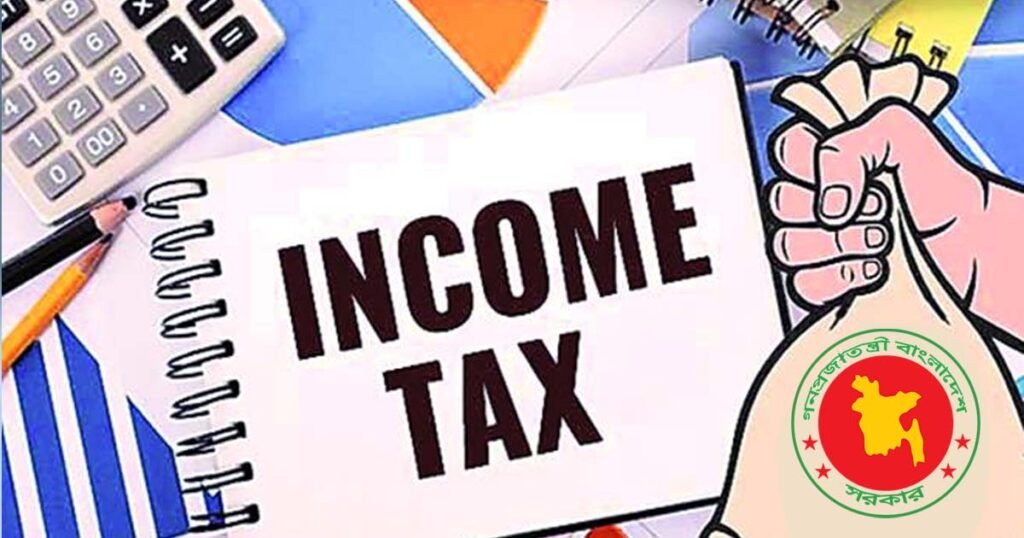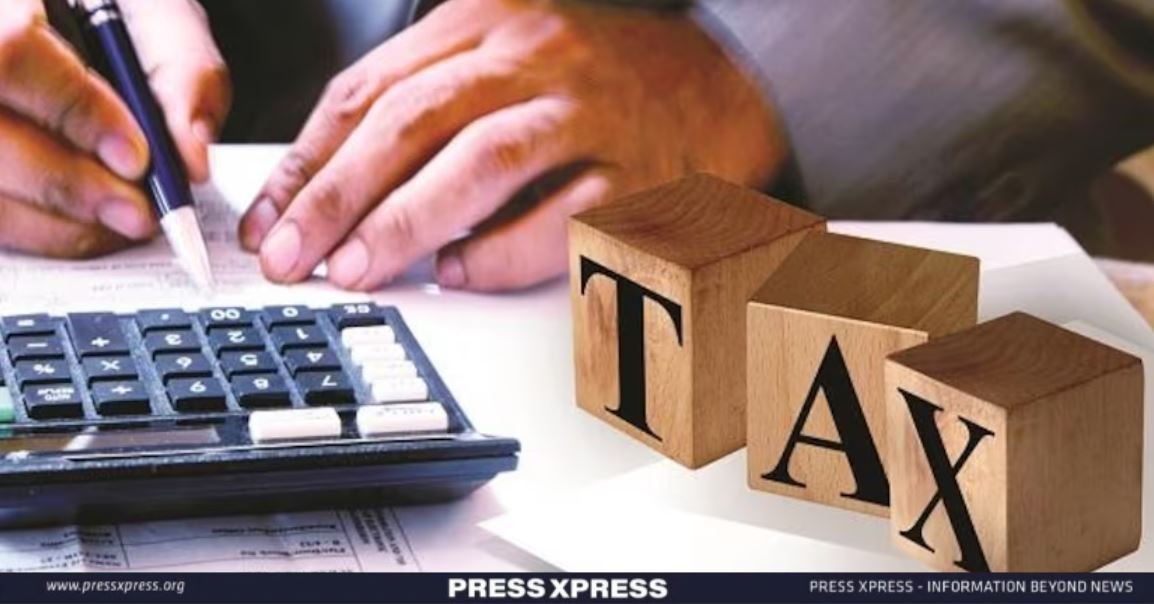The Federation of Bangladesh Chambers of Commerce & Industries (FBCCI), a cornerstone of Bangladesh’s business landscape, recently proposed a substantial increase in the tax-free income limit for individuals. Their proposition, discussed during the 44th NBR-FBCCI Consultative Committee Meeting for the forthcoming fiscal year (FY25), suggests raising the limit from Tk3.5 lakh to Tk4.5 lakh. This bold move is not isolated; it resonates with the International Monetary Fund’s (IMF) recommendation of a more significant hike to Tk5 lakh, articulated during a meeting with the National Board of Revenue (NBR).
This proposal emerges against a backdrop of mounting concerns over inflation, a phenomenon eroding the purchasing power of many Bangladeshis. The potential implementation of this proposal could set off a chain reaction across the economy. It holds the promise of bolstering disposable income and consumer spending, while simultaneously impacting government revenue streams and strategies for tax compliance.
Why Bangladesh Should Consider Raising Tax-Free Limit
Dr. Zahid Hussain, former lead economist at the World Bank’s Dhaka office, has emphasized the profound advantages of such a policy shift. He articulated, “Elevating the threshold would be advantageous for all taxpayers. It would herald a fundamental transformation in the tax landscape, ushering in a progressive structure wherein individuals would transition from tax-exempt status up to the specified threshold, and subsequently face graduated tax rates based on their income levels. Such a measure undoubtedly holds promise for the broader taxpayer base.”
Currently, Bangladesh maintains a tax-free income limit of Tk3.5 lakh, with the government having incrementally raised it by Tk50,000 from Tk3 lakh in the fiscal year 2023-24. The extant income tax regime follows a progressive trajectory, commencing at 5% for the subsequent Tk1 lakh, followed by successive tiers of 10% for the ensuing Tk3 lakh, 15% for the subsequent Tk4 lakh, 20% for the following Tk5 lakh, and culminating at 25% for any income beyond this threshold.
Income Tax Slabs
The proposed tax rates and slabs for individual taxpayers (except companies and local authorities) are as follows:
- No tax on the first Tk3.5 lakh of income.
- 5% tax on the next Tk1 lakh.
- 10% tax on the subsequent Tk3 lakh.
- 15% tax on the following Tk4 lakh.
- 20% tax on the next Tk5 lakh.
- 25% income tax on the balance of total income

Elevating the tax-free threshold represents a pivotal opportunity for individual taxpayers to retain more of their hard-earned income. This infusion of additional disposable income, the portion of earnings untouched by taxation, carries the potential to fuel a surge in consumer expenditure, thereby injecting vitality into various sectors of the economy.
Furthermore, the cascading effects of this policy transcend mere financial metrics, extending to tangible improvements in the lives of individuals with lower incomes. With greater financial flexibility, they can allocate resources towards vital necessities, potentially uplifting their overall standard of living. Concurrently, individuals in higher income brackets stand poised to channel surplus funds into discretionary spending, bolstering sectors like hospitality, retail, and entertainment, thereby fostering economic growth and vitality.
Beyond its immediate economic implications, experts posit that raising the tax-free ceiling could alleviate the burden on smaller income groups, fostering a more equitable tax landscape. This, in turn, may disincentivize participation in informal or ‘grey market’ activities aimed at tax evasion, promoting greater fiscal transparency and compliance.
Insights into Threshold Variations Among South Asian Nations
Inflation isn’t confined to Bangladesh; it’s a pervasive challenge affecting economies worldwide.
In neighboring India, recent adjustments to the tax-free income limit have been made. Under the latest tax regime, India’s tax-free income ceiling stands at RS3 lakh (approximately Tk4 lakh), surpassing Bangladesh’s current limit. This increment, from last year’s RS2.5 lakh by Rs 50,000, reflects a concerted effort to mitigate financial strain on taxpayers. Additionally, individuals in India retain the option to adhere to the old tax regime for FY 2024-25, wherein the basic tax exemption limit remains at RS2.5 lakh for individuals below 60 years of age.
Presently, Bangladesh operates with six tax slabs, while India’s latest tax regime features five, delineating income ranges subject to specific tax rates. In Pakistan, the tax-free income limit stands at Rp 6 lakh, less than Tk2.5 lakh, albeit with a 2.5% income tax obligation at this threshold. Similar to Bangladesh, Pakistan also operates with six tax slabs, showcasing variations in tax structures across regional economies.
In Sri Lanka, the tax-free allowance for individuals is LKR 500,000, with tax rates ranging from 6% to 36% for income exceeding this limit. The tax structure is tiered, with the initial LKR 500,000 taxed at 6%, and subsequent increments taxed at higher rates.
Nepal’s basic exemption limit for individuals is NPR 500,000, with tax rates ranging from 1% to 36% for income exceeding this threshold. The tax structure follows a tiered approach, with each segment of income taxed at progressively higher rates.
Meanwhile, in Bhutan, any individual earning gross income exceeding Nu. 300,000 per annum is subject to Personal Income Tax (PIT), with rates ranging from 0% to 25% based on income brackets. Notably, the first Nu. 200,000 is exempt from taxation, with subsequent increments taxed at varying rates.

Tax-Free Income Limit of Different South Asian Countries
India:
RS 3 lakh (approximately Tk4 lakh).
Bangladesh:
Tk3.5 lakh (Tk4 lakh for women and senior citizens above 65 years).
Pakistan:
Rp 6 lakh (less than Tk2.5 lakh).
Sri Lanka:
LKR 500,000 (Tk 1.84 lakh).
Nepal:
NPR 500,000 (Tk 4.12 lakh)
Bhutan:
First Nu. 200,000 (Tk 2.64 lakh)
The Trade-Off Between Tax Cuts and Government Revenue
However, a paramount concern looms over this policy shift: the potential decline in government revenue. With a larger portion of income shielded from taxation, there’s apprehension that the government may experience a reduction in tax collections. Dr. Hussain cautioned, “This move will result in government revenue loss. It’s not just about fewer individuals paying taxes; it impacts everyone, from the affluent to the economically disadvantaged.”
Such a scenario could imperil the government’s capacity to finance crucial public services such as education, healthcare, and infrastructure development. Therefore, a meticulous assessment of the potential revenue loss vis-à-vis the expected economic gains from heightened consumption becomes imperative.
While the policy endeavors to mitigate inflationary pressures on individuals, the surge in disposable income may inadvertently stoke aggregate demand, exacerbating inflationary tendencies. Dr. Hussain elaborated, “Reducing taxes will augment people’s post-tax income. As income rises, so does demand, potentially intensifying inflationary pressures on the economy.”
Hence, the Bangladesh Bank must maintain vigilant oversight and be prepared to recalibrate monetary policy as needed to mitigate any adverse effects.
Efforts to streamline the tax filing process, enhance tax collection efficiency from higher income segments, and combat potential tax evasion are pivotal for the success of this policy revision. FBCCI’s proposal for the integration and automation of tax, VAT, and customs administration, along with the establishment of a dedicated Large Taxpayers Unit in Dhaka and Chattogram, signifies a proactive step toward optimizing tax collection procedures.
Solutions to Boost Filing Numbers
Presently, there are over one crore Taxpayer Identification Number (TIN) holders in the country, but only 37 lakh filed returns last year. This stark disparity is largely attributed to the challenges associated with tax filing. To address this, FBCCI President Mahbubul Alam advocates for establishing tax offices at the upazila level to expand the taxpayer base, thereby bolstering revenues and fostering fiscal sustainability.
Dr. Syed Md Aminul Karim, a former member of the National Board of Revenue (NBR) specializing in income tax policy, suggests a potential solution to offsetting lost income by implementing higher tax rates for individuals with substantial incomes. Reflecting on past tax structures, he remarked, “During our tenure, the maximum tax slab stood at 30%. However, during the Covid-19 pandemic in 2020, it was reduced to 25%, a decision I believe was ill-advised. Reverting to the previous rate would be prudent.”
Dr. Zahid Hussain echoes this sentiment, asserting that increasing tax rates for higher income brackets could help recoup lost revenue. He elucidated, “This approach offers dual advantages. Firstly, it can bolster government revenue without necessarily impacting tax compliance. However, it’s imperative to mitigate potential tax evasion resulting from higher rates.” Additionally, he highlighted the potential for addressing income inequality, stating, “Taxing the affluent more heavily can contribute to narrowing the income gap. Introducing a new higher tax bracket could serve as a viable mechanism to achieve this objective.”


